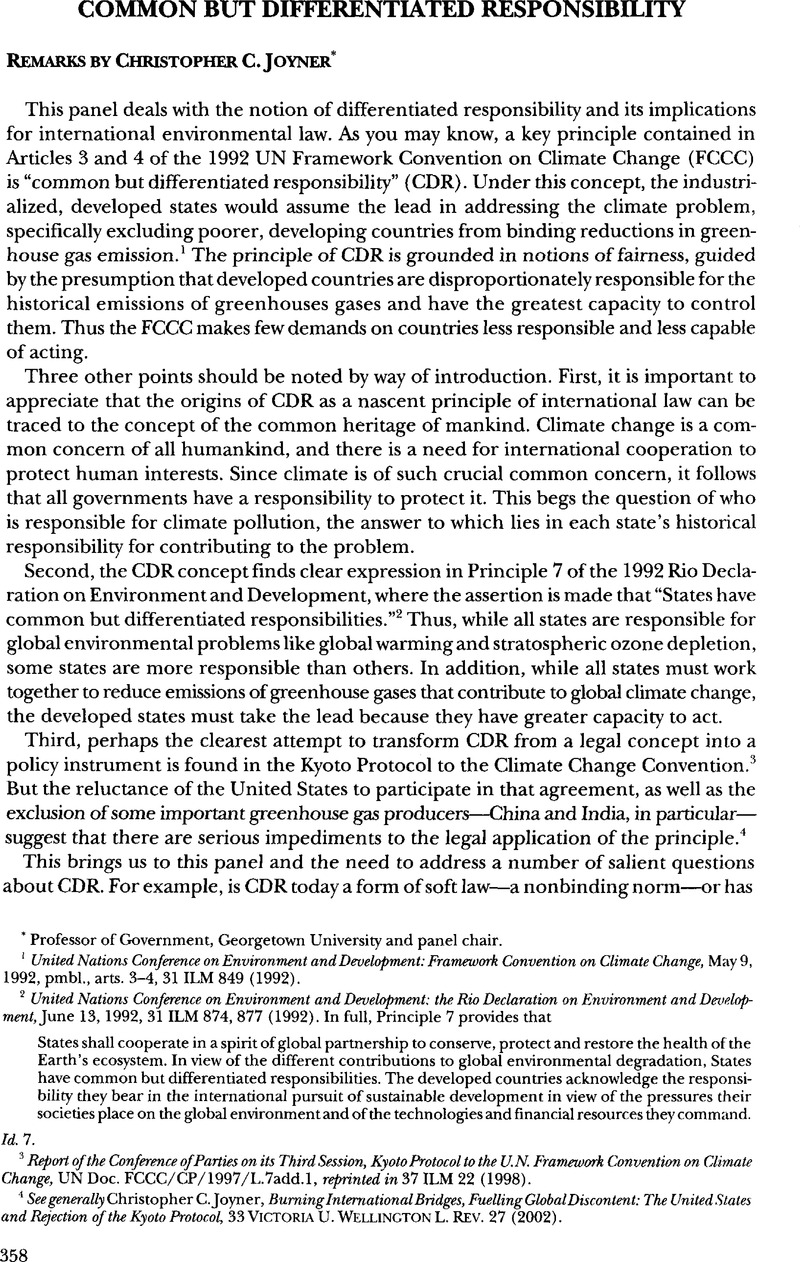Article contents
Remarks by Christopher C. Joyner
Published online by Cambridge University Press: 28 February 2017
Abstract

- Type
- Common but Differentiated Responsibility
- Information
- Copyright
- Copyright © American Society of International Law 2002
References
1 United Nations Conference on Environment and Development: Framework Convention on Climate Change, May 9, 1992, pmbl., arts. 3-4, 31 ILM 849 (1992).
2 United Nations Conference on Environment and Development: the Rio Declaration on Environment and Development, June 13, 1992, 31 ILM 874, 877 (1992). In full, Principle 7 provides that States shall cooperate in a spirit of global partnership to conserve, protect and restore the health of the Earth’s ecosystem. In view of the different contributions to global environmental degradation, States have common but differentiated responsibilities. The developed countries acknowledge the responsibility they bear in the international pursuit of sustainable development in view of the pressures their societies place on the global environment and of the technologies and financial resources they command.
2 Id. 7.
3 Report of the Conference of Parties on its Third Session, Kyoto Protocol to the U. N. Framework Convention on Climate Change, UN Doc. FCCC/CP/1997/L.7add.l, reprinted in 37 ILM 22 (1998).
4 See generally Joyner, Christopher C., Burning International Bridges, Fuelling Global Discontent: The United States and Rejection of the Kyoto Protocol, 33 Victoria U. Wellington L. Rev. 27 (2002)Google Scholar.
5 See generally the discussions in Commitment and Compliance: the Role of Non-Binding Norms in the International Legal System (Dinah Shelton ed., 2000).
- 2
- Cited by


